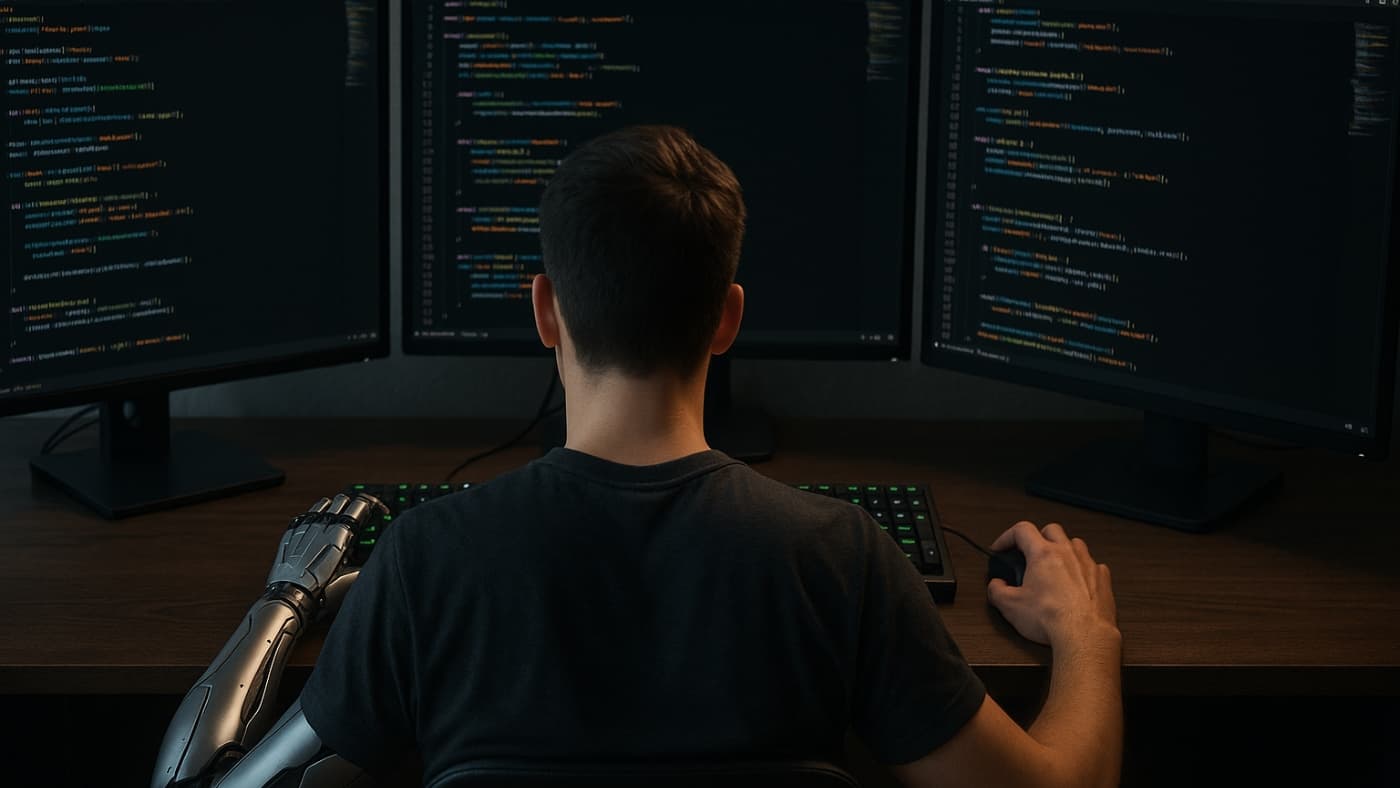
Will AI Replace Developers? Why Adaptability Matters More Than Ever
Introduction: The Fear and the Hype
The AI revolution is here, and it's louder than ever. A while back, I was overwhelmed by the constant buzz around artificial intelligence. Everyone was talking about it. I had mixed feelings: curiosity, skepticism, and - honestly - fear.
At first, I refused to use AI tools. I told myself, "If I use AI for coding, I'll lose my technical skills. I'll become dependent." Like many developers, I took pride in solving problems on my own. Using AI felt like cheating.
But here's the thing: AI didn't go away. It became the elephant in the room - everyone was using it, just not admitting it. Eventually, I dipped my toes into ChatGPT. At first, I used it casually for chatting, but soon I realized something important: AI isn't magic; it's a tool. And like any tool, its value depends on how you use it.
That realization changed everything for me. My journey went from anxiety to excitement - and in this article, I want to help you make that same shift.
The Article That Sparked My Anxiety
This all started when I read an article titled "The Era of High-Paying Tech Jobs is Over" (source). It's a strong piece that paints a bleak picture for developers: layoffs everywhere, senior engineers struggling to find jobs, and AI poised to take over.
I remember reading it and feeling my stomach drop. The combination of tech layoffs, news of automation, and constant talk about AI "replacing programmers" made me wonder if I was staring at my own career's expiration date.
If you've felt that same anxiety, trust me - I get it. It's scary to think that something you've worked so hard to master might suddenly become obsolete.
But here's what changed my perspective: fear comes from uncertainty. And the best way to fight uncertainty? Knowledge and action.
The Counterpoint: Why I'm No Longer Afraid
Not long after, I came across another article: "Two AI Legends Predict the Future of Programming (And It's Not What You Think)" (source). This piece made a bold claim: AI isn't replacing developers; it's changing what skills matter.
That clicked for me. Programming has never been static. We've evolved from punch cards to assembly, from manual memory management to high-level languages. Every shift has made some old skills less relevant - but opened doors to new opportunities.
The AI revolution isn't any different. It's not about replacing developers; it's about redefining the role.
Adaptation: The Key to Survival (and Growth)
Let's be honest: resisting change has never worked in tech. Adapting, on the other hand, is the foundation of survival. This isn't just my opinion - it's history.
Think about the Industrial Revolution. Machines replaced manual labor in many industries. People panicked. But what happened? Jobs didn't disappear; they transformed. New roles emerged. Productivity skyrocketed. Entire economies grew.
AI is our generation's Industrial Revolution. And just like then, those who adapt will thrive.
My Journey: From Anxiety to Excitement
When I first tried ChatGPT, I used it in the simplest way - asking for quick answers. Then I started using it for coding help. Over time, I expanded to tools like GitHub Copilot and Cursor, and even began training custom GPTs for my own workflows.
That's when things changed. Instead of fearing AI, I started leveraging it. And guess what? I'm learning faster than ever. I'm building things 10x quicker. My confidence grew, because I realized something crucial:
AI isn't here to replace me - it's here to amplify me.
The more I used these tools, the more I understood how to ask better questions, structure problems, and think at a higher level. Instead of focusing on syntax, I started focusing on architecture, design, and business value.
Practical Ways to Use AI (Without Losing Yourself)
Here's how you can start using AI as a tool - not a crutch:
1. Use AI to Learn, Not Just to Get Answers
Don't just copy-paste code from ChatGPT. Ask why something works. Use it as an interactive tutor. Treat every response as a starting point, not the final solution.
2. Accelerate Your Workflow
With tools like GitHub Copilot or Cursor, you can draft functions or boilerplate code in seconds. This doesn't make you less valuable - it frees up your brain for higher-level thinking.
3. Experiment Beyond Code
AI isn't just for programming. Use it to:
- Analyze datasets and generate charts
- Write technical documentation
- Brainstorm ideas for side projects or content
- Even learn about marketing and product strategy
4. Build Faster, Ship More
You can now create an MVP in days, not weeks. This opens the door to entrepreneurship, freelancing, and building your own tools.
The Future: What Will Matter Most
I can't predict every detail of the future, but here's what I believe:
- AI will keep evolving. That's inevitable.
- Developers who adapt will remain valuable. Skills like problem-solving, system design, and business understanding will matter more than syntax.
- New roles will emerge. AI trainers, prompt engineers, system architects, and product-driven developers will thrive.
So, will AI replace developers? No. But developers who refuse to adapt? They might be left behind.
Final Thoughts: Your Move
If you're anxious right now, I feel you. I've been there. But don't let fear paralyze you. Use it as a signal to grow.
Start small: explore a new AI tool today. Use it to learn, to speed up your work, to think differently. Make AI your competitive advantage - not your enemy.
Because at the end of the day, AI won't replace us. But developers who use AI will replace those who don't.



